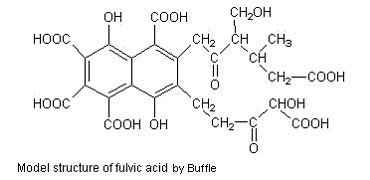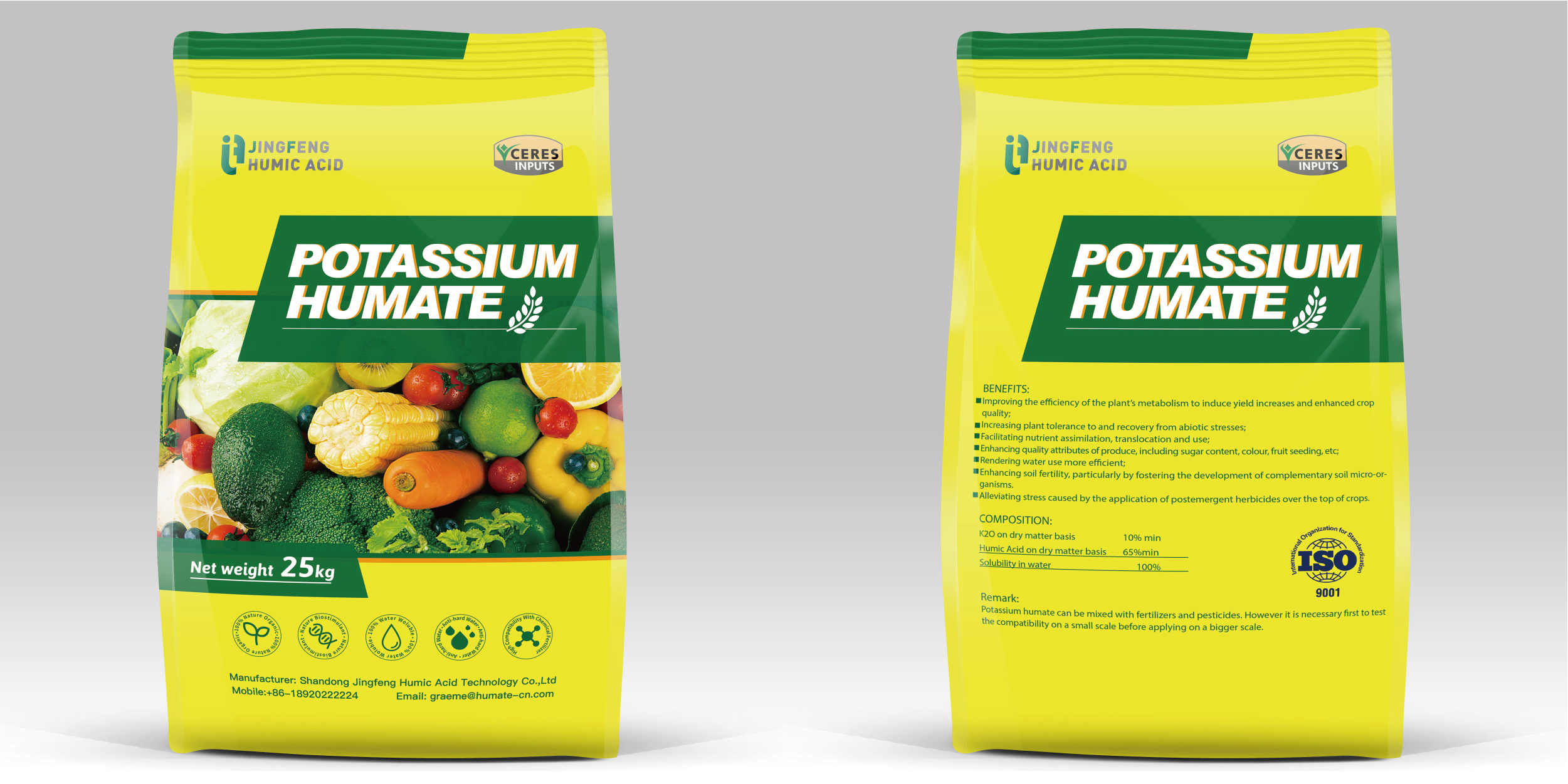Fulvic acid is the smallest and most active component in humic acid. It is the essence of humic acid. The effect of fulvic acid is the most stable in agriculture. The specific characteristics are as follows,
Characteristics of Fulvic Acid in Agriculture
1) The molecular weight of fulvic acid is small and easy to be absorbed and utilized by plants.
2) The functional group content of fulvic acid is more than general humic acid, the physiological activity is better.
3) The complexation ability of metal ions is stronger.
4) humic acid can not be directly dissolved in water, and needs to be converted into potassium, sodium and other monovalent metal salts or ammonium salts to dissolve in water. The aqueous solution of these salts becomes alkaline, while fulvic acid is directly soluble in water and its aqueous solution becomes acidic.

The effect of fulvic acid on soil, fertilizer and plant in agriculture is as follows,
1、Fulvic acid in agriculture soil improvement
1)Improve soil aggregate structure.
Fulvic acid belongs to humic substances, which can affect the properties of soil, promote soil to form a more stable aggregate structure, increase the aggregate content of≥ 0.25 mm in soil by 10-20%, and increase the content of organic matter by 10%, which can keep soil moisture and increase ventilation, which is beneficial to the growth of crops, and enhance soil water retention.
Fulvic acid is a kind of hydrophilic colloid with strong water absorption capacity. The maximum water absorption can exceed 500%. The weight of water absorbed from saturated atmosphere can reach more than double its own weight, which is much higher than that of ordinary mineral colloid. Fulvic acid inhibits crop transpiration and slows soil water consumption and increases soil water content accordingly.
2)Enhance soil fertility conservation.
Fulvic acid itself is an organic acid, which not only increases the dissolution of mineral parts in the soil, provides soil nutrients, but also increases the availability of nutrients through complexation. As an organic colloid, fulvic acid has both positive and negative charges, which can adsorb anion and cation, so that these nutrients can be preserved in soil without water loss, and the utilization rate of fertilizer is improved, which is especially important in sandy soil.
3)Adjust PH.
Fulvic acid and fulvic acid salt transform each other to form a buffer system, thus playing the role of regulating the PH of soil solution.
4)Reduce soil salinity.
Fulvic acid, formed colloidal structure by complexing and chelating metal cations in soil, and its porosity (larger than the surface) can adsorb ions or molecules in soil solution and reduce the concentration of salt in soil solution.
2、Increasing fertilizer utilization
fulvic acid contains carboxyl groups, phenolic hydroxyl groups and other functional groups. It has strong complexation, chelation and surface adsorption ability. Which can reduce the loss of ammonium nitrogen, increase the moving distance of phosphorus in soil, inhibit the fixation of water-soluble phosphorus in soil, convert invalid phosphorus into available phosphorus, and promote the absorption of phosphorus by root system.
Fulvic acid can absorb and store potassium ions, and increase the content of available potassium, especially the efficiency enhancement of potassium fertilizer. Experiments show that fulvic acid can increase the utilization rate of nitrogen, phosphorus and potassium in fertilizer by more than 20% to promote agriculture.
3、Slow release pesticides

Fulvic acid has the function of surfactant, which can reduce the surface tension of water and emulsify and disperse the pesticide; Fulvic acid, as a colloidal substance with large viscosity and surface area, may have strong physical adsorption effect on the pesticide; Fulvic acid itself has bacteriostatic and disease resistance, and the compound with fungicides is equivalent to the combination of two pesticides.
4、Stimulation to plant growth

Fulvic acid is similar to the endogenous hormone of plant body, which can promote seed germination, root growth and early ripening of fruit coloring. It shows as follows, promoting root growth and activity, similar to auxin effect; promoting seed germination, seedling emergence and seedling growth, similar to gibberellin effect;
Making leaves enlarged, thickened, green, lower leaf senescence delayed, similar to cytokinin effect; reducing stomata, transpiration, similar to abscisic acid effect; Early coloring, ripening, similar to ethylene ripening effect; Promoting cell division and cell elongation, differentiation and other effects, similar to the effect of two or more plant hormones.
5、Improving agricultural quality
Fulvic acid enhances the synthesis of sugar, starch, protein, fat and various vitamins, can stimulate the activity of polysaccharide enzyme, make polysaccharide into soluble monosaccharide, so as to improve the sweetness of fruit; increase the ratio of total sugar to nicotine, potassium , chlorine in tobacco leaves, improve the quality of tobacco leaves; improve the total sugar content and vitamin C content in watermelon, cantaloupe and other fruits.
6、Enhancing crop resistance

Resistance index of plants (one): The content of ABA( deacidification in plants: a plant hormone that inhibits growth). Plants will increase ABA content under any adversity conditions. Abscisic acid is the “first messenger” that initiates the expression of anti-stress genes in plants and effectively activates the anti-stress immune system in plants. Physiological mechanism (commonality) of fulvic acid to improve plant resistance to stress: Fulvic acid can increase ABA content in plants.









